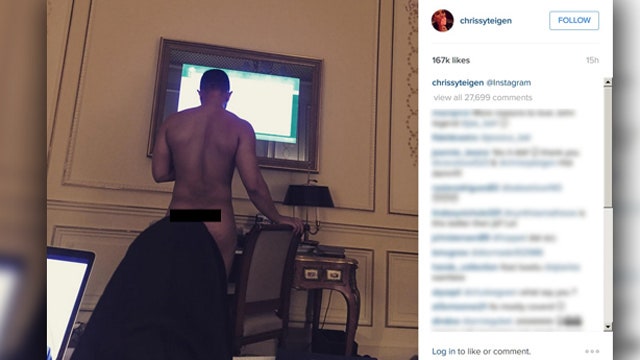Facebook says it's ready to push the envelope when it comes to the kind of content it allows.
The social network announced on Friday that they are planning on relaxing their standards of what’s okay to publish on Facebook— leading some to speculate that they might soon start allowing racier content and images.
Related:
“In the weeks ahead, we’re going to begin allowing more items that people find newsworthy, significant, or important to the public interest — even if they might otherwise violate our standards,” two Facebook vice presidents, Joel Kaplan and Justin Osofsky, wrote in a recent blog item. “Our intent is to allow more images and stories without posing safety risks or showing graphic images to minors and others who do not want to see them.”
Right now, Facebook’s community guidelines lay out their standards on nudity this way: “We also restrict some images of female breasts if they include the nipple, but we always allow photos of women actively engaged in breastfeeding or showing breasts with post-mastectomy scarring,” the social network’s standards read, in part.
A Facebook spokesperson, Christine Chen, told FoxNews.com that at this point, the compacy does not have "any more specifics to announce" on the topic. "Right now we are focused on getting input and feedback from our community and partners," she said in an email.
It’s arguably a complex topic, and Facebook acknowledges that determining what kind of content is appropriate or not is both subjective and culturally determined. “Images of nudity or violence that are acceptable in one part of the world may be offensive — or even illegal — in another,” the blog item reads.
The social network also said that they’d be consulting with experts, journalists, law enforcement personnel and others going forward as they try to determine what to permit, or not.
Facebook is not the only social network that must contend with these kinds of questions. Instagram (which Facebook purchased in 2012) has a similar policy: "we don’t allow nudity on Instagram," the photo-sharing site explains in its community guidelines. Like Facebook, it doesn't allow nipples but does permit breastfeeding photographs.
Twitter's policies are largely the same, forbidding "full and partial nudity" but allowing "nude fine art" as well as breastfeeding photographs.
Proponents of the "Free the Nipple" movement-- that's also the name of a 2014 film on the same topic-- want to end censorship of female breasts on place like Instagram, arguing that the standards towards women shouldn't be any different than those towards men, whether online or in public. The idea has the support of prominent women like Rihanna, Miley Cyrus, and Bella Hadid.









































